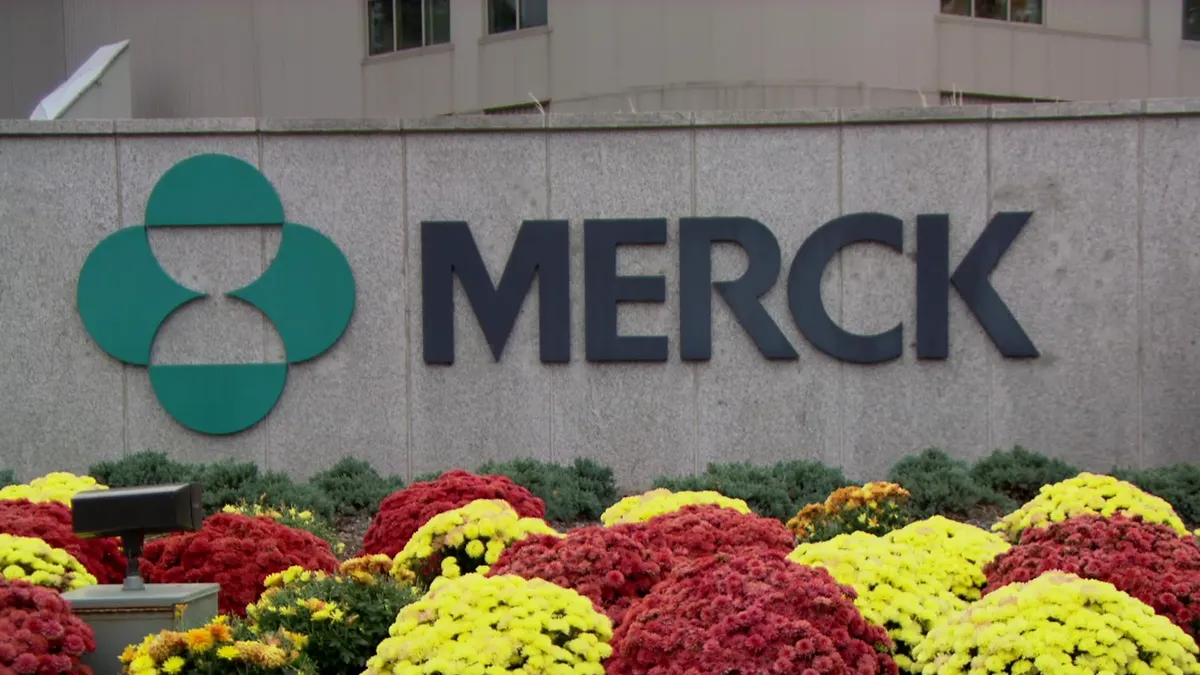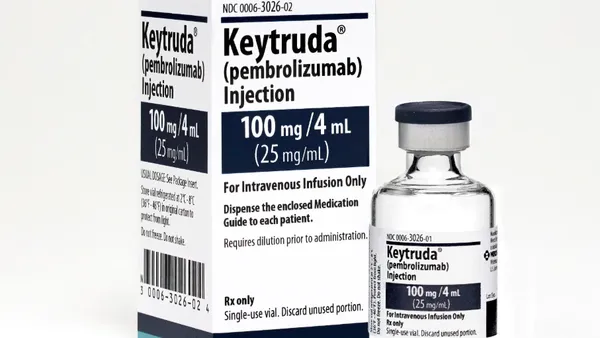Treatments for acute myeloid leukemia (AML) have made leaps in recent years and roughly two out of every three AML patients will see their disease go into remission. But maintenance drugs to keep the disease at bay remain elusive and more than half of these patients will see their cancer return.
Sellas Life Sciences Group, a New York City-based late-stage clinical biopharmaceutical company aims to change that with two investigational treatments designed to delay or prevent relapses after treatment. Company officials hope they will help patients not only with AML, but several other challenging cancers.
Sellas’s lead drug candidate galinpepimut-S (GPS), is a therapeutic cancer vaccine the company licensed from Memorial Sloan Kettering Cancer Center. It’s also working on a cyclin-dependent kinase 9 (CDK9) inhibitor called GFH009.
“GPS is an immunotherapy, and it works by stimulating a patient’s own immune system — their white blood cells — to selectively attack cancer cells,” said Dr. Dragan Cicic, senior vice president of clinical development at Sellas Life Sciences. “Based on what we’ve observed in our clinical trials today, it’s a potentially long-term therapy that does not cause broad damage to almost the whole body, like chemotherapy usually does. Nor does it result in a more intense activation of the immune system, which can often cause an aggressive immune response against some tissues, like CAR-T therapy or checkpoint inhibitors.”
GPS is now in a phase 3 trial for AML, phase 1/2 trials for ovarian cancer, and recently completed phase 2 trials for malignant pleural mesothelioma (MPM), a rare cancer in the lining of the lungs, and multiple myeloma (MM), a plasma cell cancer.
The drug targets blood cancers and solid tumors that overexpress Wilms tumor (WT1) protein — which is a tantalizing target for immunotherapies because it’s one of the most widely expressed antigens in multiple types of cancer. In a phase 2 trial for patients with AML, the drug substantially increased median overall survival for patients who were in remission and received the drug as part of a maintenance plan. Median overall survival increased from the 17.5 months historically seen with standard treatments to more than five years (67.6 months).
However, trial results for GPS have varied by cancer type. Preliminary results from a phase 2 trial of GPS for patients with ovarian cancer, for example, found that treatment with GPS in combination with Keytruda increased the disease control rate from 37.2% to 54.3% at 43.1 weeks. It was also linked to a 43% increase in median progression-free survival, but it only pushed it from 8.4 weeks in patients treated with checkpoint inhibitors alone to 12 weeks. However, patients who had been treated with only one previous line of chemotherapy responded better to the treatment — median progression-free survival for that group was 24 weeks.
In addition to GPS, Sellas is also testing GFH009 in a phase 1 trial for people whose cancers have returned or not responded to treatment. Its indications include AML, pediatric soft tissue sarcomas and certain hematologic malignancies, which are cancers that begin in blood-forming tissues.
"These investigational drugs are not being developed...to replace other therapies. Instead, they will potentially work in concert with them and easily fit within the existing treatment paradigm."

Dr. Dragan Cicic
Senior vice president of clinical development, Sellas Life Sciences
“GFH009 is an inhibitor of an important protein, cyclin-dependent kinase 9 (CDK9), that allows cancer cells to rapidly synthesize other proteins that enables them to avoid killing by anti-cancer drugs. In that regard, GFH009 is synergistic with most other cancer treatments that cause cancer cell killing, but are thwarted by the defenses that GFH009 is designed to overcome,” Cicic said.
Developed to be less toxic than other drugs in this category, company officials believe GFH009 has the potential to produce longer overall survival rates.
Here, Cicic discussed what Sellas hopes to achieve with its oncology pipeline, and what its investigational treatments might mean for patients.
This interview has been edited for style and brevity.
PHARMAVOICE: Very few cancer treatments help deliver long-term survival in later-stage cancers. What makes GPS and GFH009 different?
DR. DRAGAN CICIC: This statement is unfortunately very true. In AML specifically, we have seen a significant increase in remission rates with important new drugs — however, it hasn’t been accompanied by a corresponding increase in median survival for AML patients. GPS is being studied in clinical trials to specifically address that issue, potentially extending survival in patients who enter remission.
There are also currently no effective treatments for AML patients who relapse on the standard regimen or for patients who cannot tolerate intensive chemotherapy. Those patients expire rapidly after relapse, usually within two-and-a-half to three months. GFH009 is being developed with the intent of potentially addressing exactly those patients, where we hope to reverse their relapse with the addition of GFH009 to their treatment regimen.
It appears from trial results so far that progression-free survival with GPS seems to vary depending on the cancer type. Is there a reason for those differences?
Yes, unfortunately, there are virtually no drugs that work equally well in all patients. Cancer is a very complex disease and, in some ways, it is different in each patient. Many factors influence that. For example, in patients who have had many previous cancer treatments, their cancer cells evolved to be resistant to many therapies, including new therapies. We have recently seen a trial in which patients were treated immediately upon diagnosis with a drug, and there was almost a 100% complete response rate. But, when that drug was administered to patients who were already treated with other therapies, fewer than 20% of patients had any meaningful response at all.
What side effects are seen with each of these treatments, and how does that differ from the current standard of care?
The side effects that we have observed in our clinical trials for our investigational drugs are generally very mild and different from other treatments. For GPS, side effects are mostly local skin irritation at the site of subcutaneous injection. For GFH009, which is in an earlier phase of development, we haven’t seen dose-limiting side effects in our clinical trial so far.
We are happy to report here that both of our investigational drugs are targeted to specific traits of cancer cells and, as such, we have observed in our clinical trials to date that they do not significantly impact normal tissues. In that regard, they are very different from intensive chemotherapy: no hair loss, no neurologic pains, no heart, kidney or liver failures with associated tiredness and intolerance of exertion, etc.
Have there been any serious adverse events to date with either treatment?
The most important point here is that we have not seen any serious pattern of adverse events, meaning there have been no recurring serious adverse events. Typically, there are serious adverse events with any drug in clinical trials for patients with advanced cancers, and it is not always possible to tell for sure whether the event occurred because of the drug, the patient’s disease or the patient’s general condition. However, our investigational drugs have been in some 200 patients so far and we have not seen serious adverse events that can definitely be attributed to our drugs, and in general, serious adverse events of any kind were very, very rare.
Are other companies testing drugs similar to GPS or GFH009? And if so, how does the company plan to distinguish itself from the competition?
Both of the approaches that we use are well-validated scientifically and, as expected, there is a lot of interest in them from other companies. What distinguishes our investigational drugs is a particular focus on side effects. For example, for AML patients, one of the biggest — if not the biggest — issues is that the available and competing treatments kill not only leukemia cells but also normal white blood cells. As a result, this leads to frequent infections with serious and sometimes lethal consequences. Our investigational drugs are specifically designed to potentially have as little impact on normal white blood cells as possible.
What outcomes are you ultimately hoping to see with GPS and GFH009?
We are developing GPS and GFH009 with an explicit goal of addressing the highest unmet medical needs in AML: duration of survival and lack of meaningful treatments after patients relapse.
GPS and GFH009 each have the potential to take over where other available treatments fail. These investigational drugs are not being developed in isolation from other therapies or to completely replace other therapies. Instead, they will potentially work in concert with them and easily fit within the existing treatment paradigm, hopefully enhancing efficacy or reversing the failures of other drugs.








